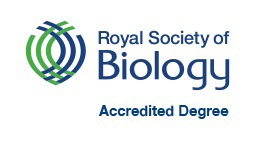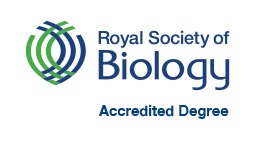Ymddygiad Anifeiliaid (gyda blwyddyn integredig mewn diwydiant) Cod C122 Dewch i Ddiwrnod Agored Dewch i Ddiwrnod Agored
Ymgeisio NawrRydych chi'n edrych ar y cwrs hwn ar gyfer Dechrau Medi 2024
Prif Ffeithiau
C122-
Tariff UCAS
120 - 104
-
Hyd y cwrs
4 blynedd
-
Cyfrwng Cymraeg
24%
Manylion pellach ynglŷn â'r gofynion mynediad
Ymgeisio NawrSut a pham mae anifeiliaid yn ymddwyn fel y maent? Mae gwyddonwyr sy'n astudio ymddygiad anifeiliaid yn defnyddio dulliau trwyadl, gwyddonol i ateb cwestiynau o'r fath. Mae'r astudiaeth wyddonol o ymddygiad anifeiliaid yn darparu cipolwg gwych i'r ffyrdd y mae anifeiliaid yn goroesi ac yn atgenhedlu yn eu hamgylcheddau deinamig, mae'n hanfodol er mwyn gwarchod a rheoli rhywogaethau prin a rhai sydd mewn perygl yn llwyddiannus, ac mae'n hanfodol i wella lles anifeiliaid dof a domestig. Mae'r amrywiad hwn ar ein cynllun Ymddygiad Anifeiliaid yn cynnwys blwyddyn integredig mewn diwydiant rhwng yr ail a'r bedwaredd flwyddyn o astudio. Bydd blwyddyn o brofiad gwaith yn gwella eich rhagolygon cyflogaeth yn fawr, ac yn rhoi mantais i chi wrth ddilyn gyrfa mewn Ymddygiad Anifeiliaid!
Trosolwg o'r Cwrs
Modiwlau Dechrau Medi - 2024
Noder: Y modiwlau a restrir isod yw'r modiwlau y bwriedir eu cyflwyno ar hyn o bryd yn ystod y flwyddyn academaidd nesaf ac mae'n bosibl y gallant newid. Maent wedi'u cynnwys yma i roi syniad o strwythur y cwrs.
| Teitl y Modiwl | Cod y Modiwl | Gwerth Credyd |
|---|---|---|
| Bioleg Celloedd | BG17520 | 20 |
| Comparative Animal Physiology | BR16720 | 20 |
| Disease Diagnosis and Control | BR15420 | 20 |
| Ecoleg a Chadwraeth | BG19320 | 20 |
| Genetics, Evolution and Diversity | BR17120 | 20 |
| Sgiliau ar gyfer Gwyddonwyr Bywyd Gwyllt | BG15720 | 20 |
| Teitl y Modiwl | Cod y Modiwl | Gwerth Credyd |
|---|---|---|
| Animal Behaviour | BR21620 | 20 |
| Behavioural Ecology | BR23920 | 20 |
| Dulliau Ymchwil | BG27520 | 20 |
| Vertebrate Zoology | BR26820 | 20 |
| Veterinary Health | BR27120 | 20 |
Opsiynau
| Teitl y Modiwl | Cod y Modiwl | Gwerth Credyd |
|---|---|---|
| An Introduction to Landscape Ecology and Geographic Information Systems | BR25520 | 20 |
| Invertebrate Zoology | BR25420 | 20 |
| Tropical Zoology Field Course | BR23820 | 20 |
| Teitl y Modiwl | Cod y Modiwl | Gwerth Credyd |
|---|---|---|
| Integrated Year in Industry | BRS0060 | 60 |
| Teitl y Modiwl | Cod y Modiwl | Gwerth Credyd |
|---|---|---|
| Advanced Animal Behaviour | BR30220 | 20 |
| Behaviour and Welfare of Domesticated Animals | BR35120 | 20 |
| Traethawd Estynedig | BG36440 | 40 |
Opsiynau
| Teitl y Modiwl | Cod y Modiwl | Gwerth Credyd |
|---|---|---|
| Animal Behaviour Field Course | BR34920 | 20 |
| Behavioural Neurobiology | BR35320 | 20 |
| Global Biodiversity Conservation | BR33420 | 20 |
| Parasitology | BR33820 | 20 |
| Population and Community Ecology | BR33920 | 20 |
| Veterinary Pharmacology and Disease Control | BR36820 | 20 |
| Wildlife Conservation | BR34520 | 20 |
Gyrfaoedd
Dysgu ac Addysgu
Gofynion Mynediad Nodweddiadol
Tariff UCAS 120 - 104
Safon Uwch BBB-BCC gan gynnwys B mewn Bioleg
Gofynion TGAU (o leiaf gradd C/4):
English or Welsh, Science and Mathematics
Diploma Cenedlaethol BTEC:
DDD-DDM in a specified subject
Bagloriaeth Ryngwladol:
30-28 with 5 points in Biology at Higher Level
Bagloriaeth Ewropeaidd:
75%-65% overall with 7 in Biology
Mae'r Brifysgol yn croesawu ceisiadau israddedig gan fyfyrwyr sy'n astudio'r Diploma Mynediad i Addysg Uwch neu gymwysterau lefel T, ar yr amod eu bod yn cyflawni'r canlyniadau perthnasol o ran cynnwys y pwnc a'r dysgu. Ni allwn dderbyn Diplomâu Mynediad i Addysg Uwch na lefelau T fel cymhwyster cyffredinol ar gyfer pob cwrs gradd israddedig.
Mae ein polisi derbyn cynhwysol yn rhoi gwerth ar ehangder yn ogystal â dyfnder yr astudio. Dewisir ymgeiswyr ar sail eu teilyngdod eu hunain a gall cynigion amrywio. Os hoffech wirio a yw eich cymwysterau yn gymwys cyn cyflwyno cais, cysylltwch â'r Swyddfa Derbyn Israddedigion am gyngor ac arweiniad.
|


